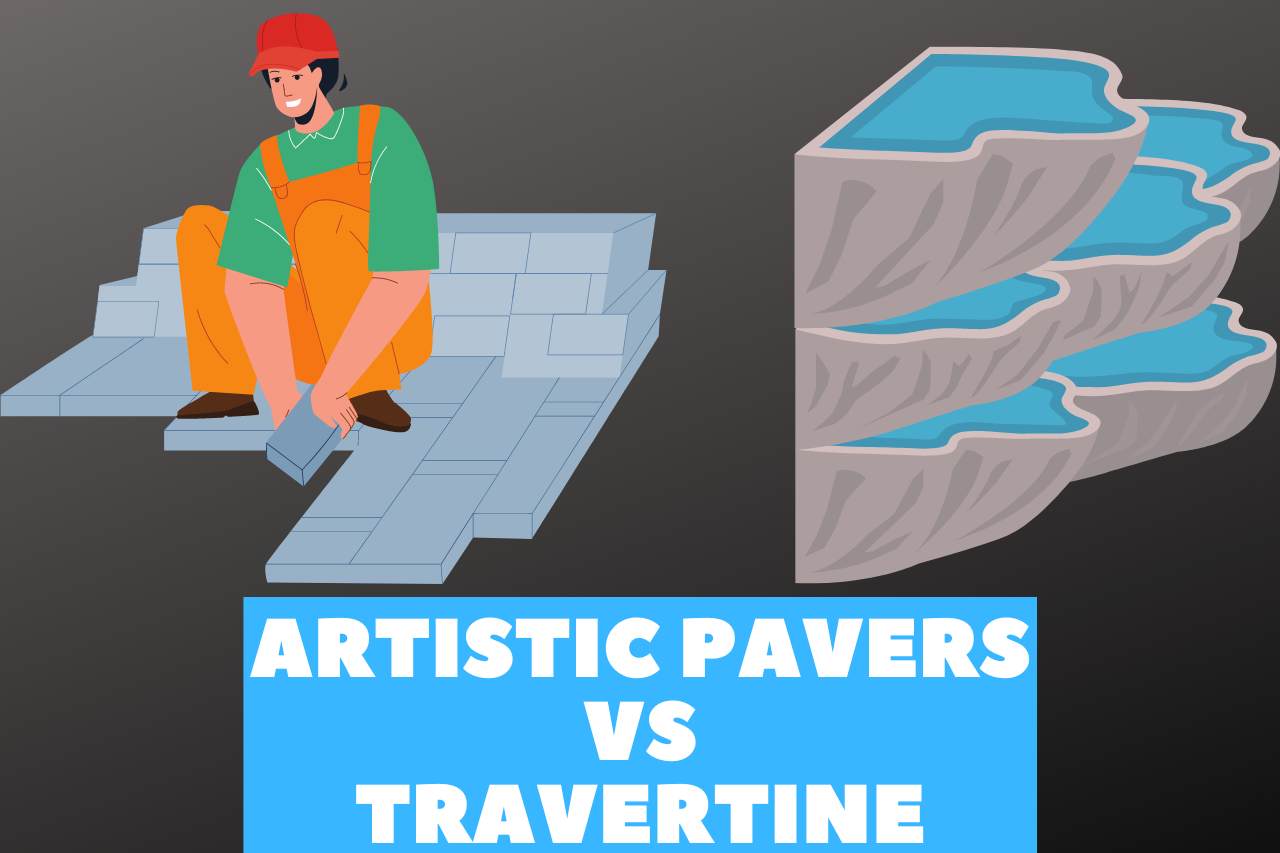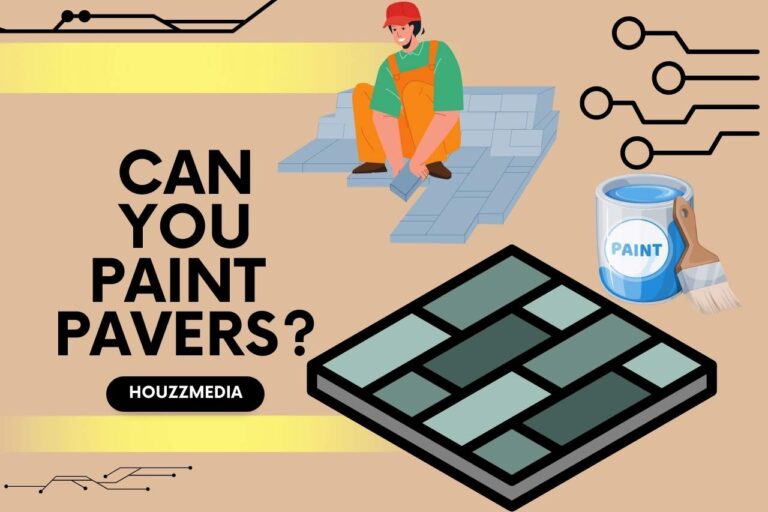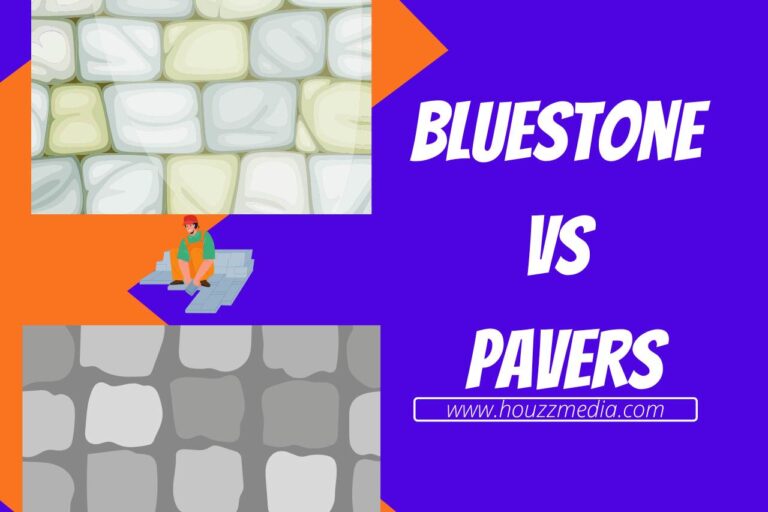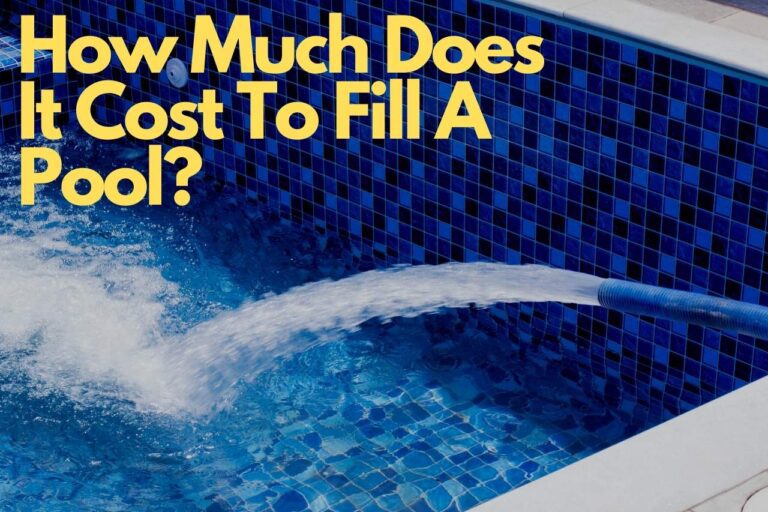Artistic Pavers vs Travertine – Which is Better?
The battle between travertine and pavers is unavoidable when working on a pool project. It can be hard to go for an option if you do not know its capability and scope. So we are here for you with a detailed comparison of artistic pavers vs. travertine.
We will also disclose and discuss more related questions you have on your mind.
Stick to the article and learn everything you should know about artistic pavers and travertine.
We are bound to help you make a better choice.
Let’s get into the discussion.
What is the Difference Between Travertine Tile and Pavers?
The primary difference between the two materials, travertine tiles, and pavers, is the thickness.
Pavers are very thick when compared to pavers.
How Thick?
There are a couple of different artistic pavers. The thickness in common can be estimated to be 1 ¼ – 2″. The thickness of travertine is ½”. So obviously, travertine is thinner in comparison.
Nevertheless, we live in the 21st century, and there are always solutions to every problem. We can get rid of the thickness problem in the pavers with the use of suitable substrates.
As we move further into the article, we will discuss the differences, similarities, pros, and cons of both travertine and artistic pavers in detail.
Do follow up if you do not want to end up with a wrong decision for your pool area.
Artistic Pavers vs Travertine
The focal point of the discussion. Let’s do it.
There are 2 different types of artistic pavers, and then there is travertine.
To grab a better and more thorough scope of the materials, let’s talk about every one of them.
-
Artistic Brick Pavers
Brick artistic pavers make a great choice for a pool deck.
Since brick is a very popular material used in construction, you are open to plenty of options – size, shape, color, etc.
You will not have to stress over the theme and design of your pool area when you go for brick pavers.
Why?
It will naturally blend in well with any theme.
Now let’s talk about their capabilities of being the one.
Naturally, brick has more resistance power. So bother less about it. All you will need to do is choose a brick with a suitable texture. And when sealing, give it a non-slippery finish, and you’re perfect on the go.
However, there is one thing you will need to pay more careful attention to when flooring your pool deck with bricks. (Almost a drawback, but not really)
The laying/installing process of the bricks. It is a crucial one. One small mistake and the entire flooring is screwed (in the future, obviously)
Therefore, you must ensure the installation has zero loopholes and is absolutely perfect. (Takes energy and effort)
Besides that, brick pavers are a good option for gorgeous, quality pool deck flooring.
-
Artistic Concrete Pavers
Second, off the list, we have concrete pavers.
Let’s get into the suitability of it being the pool deck flooring.
Concrete pavers are no less than brick pavers. In fact, they bring along some additional perks like they are CHEAP!
Let’s start with their resistance since it is important to consider. Obviously, concrete has high resistance than any other. Worry not.
They will last for decades and more if properly installed and maintained.
When it comes down to outlook, they serve no less.
There are numerous options you will have in the market when choosing concrete pavers.
Concrete pavers are available in different shapes, colors, and sizes. You are 100% free to choose one per your theme.
The concern is that you must be very attentive regarding the installation process. (Just as in brick pavers)
Even a minor mistake in installation can lead to bad outcomes, which we do not want at any cost.
If you ensure you fit in and seal them perfectly, there is nothing to bother about.
- Travertine Tiles
Travertine tiles are the ultimate luxury option for a pool deck
What’s the Hype?
Well, travertine is naturally extracted tiles that give off luxury vibes.
Let’s talk about how boujee they are.
Travertine tiles are naturally non-slippery. You have to have no hassle in sealing it off. But we recommend sealing it off for long-lasting durability.
It provides a neutral and gorgeous outlook as well.
Moreover, it absorbs very few sun rays. So you will always have a cool surface to step on, and guess what? It won’t fade in color. Let the sun do whatever it wants.
Travertine tiles are also very resistant, especially to freeze-thaw cycles in the construction process.
And you’ve got nothing to worry about the deposit of white materials on it (which always happens in watery areas like pools).
Does It have Any Drawbacks?
We guess there are a few you should know before you make a decision.
Travertine surfaces tend to be soft, so they cannot withstand harsh actions. If harshly handled, it may result in cracking and chipping. (After all, it is NOT cheap – yep, it is very expensive)
When it comes down to the installation process, travertine is a little more stubborn than artistic pavers.
Why?
They are very heavy materials to handle and should be perfectly installed to avoid future disasters.
Also, there aren’t many options to choose from if you want to purchase travertine. They are either squares or rectangles and are always neutral in color.
Is Travertine a Luxury?
Yes, kind of.
Travertine tiles are very expensive among their other counterparts, given their perks.
What is the Best Paver to Put Around a Pool?
Both brick and concrete pavers make a great choice for a pool deck.
If installed precisely and maintained carefully, bot pavers can last long.
Since we have already discussed the pros and cons of both types of pavers, make your call based on your requirements and convenience.
How Much More Expensive is Travertine than Pavers?
Pavers would cost approximately 4 to 8 bucks per square, while travertine may cost 10 to 15 bucks per square.
Does Travertine Fade in Sun?
Not at all.
Travertine tiles absorb very few UV rays. They can reflect the sun’s rays and not absorb them.
So they won’t be scorching in the summer. You will always have a cool floor to step on.
And they won’t fade in color, either.
Moreover, travertine tiles come in neutral colors. So even if the tiles fade in very slight amounts over a long period, it wouldn’t be very visible.
You May Also Like






